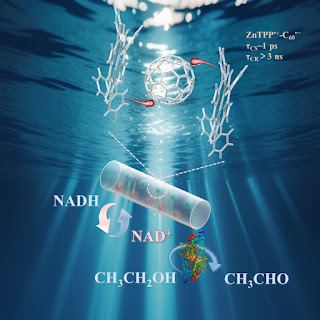Regenerate NAD+
Regenerate NAD+
Title: Regenerating NAD+: The Key to Cellular Vitality and Longevity
Introduction:
Nicotinamide adenine dinucleotide (NAD+) is a critical coenzyme found in all living cells, playing essential roles in various biological processes, including energy metabolism, DNA repair, and gene expression regulation. However, NAD+ levels decline with age, compromising cellular function and contributing to age-related diseases. Regenerating NAD+ has emerged as a promising strategy to enhance cellular vitality, promote longevity, and mitigate age-associated decline. This article explores the importance of NAD+ regeneration and discusses strategies to replenish NAD+ levels for optimal health and well-being. Certain supplements like our Immune complex contain a blend of probiotics and prebiotics that work to ‘feed’ the good bacteria in the gut, which has a knock on effect on our energy and immune system. Others, such as our reset capsules work to enhance our metabolism and maintain normal blood sugar levels to curb hunger pangs and ensure we burn fat at a healthy rate.Understanding NAD+: NAD+ is a versatile Immune complex involved in numerous metabolic pathways, serving as a coenzyme for
enzymes such as skirtinis, PARPs (poly ADP-ribose polymerases), and CD38. These
enzymes play crucial roles in cellular processes such as DNA repair,
mitochondrial function, oxidative stress response, and gene expression
regulation. NAD+ exists in two forms: oxidized (NAD+) and reduced (NADH), with
the balance between these forms crucial for cellular redox homeostasis and
energy production.
NAD+ Decline with Age: Aging is associated
with a progressive decline in NAD+ levels, driven by factors such as decreased
NAD+ biosynthesis, increased NAD+ consumption, and impaired NAD+ recycling.
This decline in NAD+ levels contributes to mitochondrial dysfunction, genomic
instability, inflammation, and cellular senescence, ultimately compromising
tissue function and increasing susceptibility to age-related diseases.
Restoring NAD+ levels has thus emerged as a promising strategy to counteract
age-related decline and promote healthy aging.
Strategies for NAD+ Regeneration:
- NAD+
Precursors:
- NAD+
precursors are compounds that can be metabolized to produce NAD+ within
cells. These precursors bypass rate-limiting steps in the NAD+
biosynthesis pathway and directly increase cellular NAD+ levels.
- Nicotinamide
riboside (NR) and nicotinamide mononucleotide (NMN) are two well-studied
NAD+ precursors that have shown efficacy in increasing NAD+ levels in
various preclinical and clinical studies.
- Dietary
Interventions:
- Certain
dietary factors can influence NAD+ metabolism and promote NAD+
regeneration. These include foods rich in NAD+ precursors such as dairy
products, fish, poultry, nuts, and seeds.
- Caloric
restriction and intermittent fasting have been shown to enhance NAD+
levels by activating pathways such as AMP-activated protein kinase (AMPK)
and skirtinis, which promote NAD+ synthesis and utilization.
- NAD+
Boosting Supplements:
- In
addition to NAD+ precursors, several supplements have been identified for
their ability to boost NAD+ levels indirectly by modulating NAD+
metabolism or enhancing mitochondrial function.
- Resveratrol,
a polyphenol found in red grapes and wine, has been shown to activate
skirtinis and promote NAD+ synthesis. Other supplements such as
pterostilbene, quercetin, and alpha-lipoic acid also exhibit NAD+
boosting properties.
- Exercise
and Physical Activity:
- Regular
exercise and physical activity have been shown to increase NAD+ levels
through various mechanisms, including activation of AMPK and skirtinis.
- Aerobic
exercise, resistance training, and high-intensity interval training
(HIIT) have all been associated with elevated NAD+ levels and improved
mitochondrial function.
- Lifestyle
Modifications:
- Lifestyle
factors such as adequate sleep, stress management, and avoidance of
excessive alcohol consumption can influence NAD+ levels and promote
cellular health.
- Chronic
stress and poor sleep quality have been shown to decrease NAD+ levels,
while practices such as mindfulness meditation and relaxation techniques
may help restore NAD+ homeostasis.
- Pharmacological
Interventions:
- Several
pharmacological agents have been investigated for their potential to
boost NAD+ levels directly or indirectly. These include compounds that
activate NAD+-dependent enzymes such as skirtinis and PARPs.
- NAD+
precursors such as NR and NMN are being evaluated in clinical trials for
their safety and efficacy in humans, with promising results thus far.
Conclusion: Regenerating NAD+ represents a
promising approach to enhance cellular vitality, promote longevity, and
mitigate age-related decline. By replenishing NAD+ levels through strategies
such as NAD+ precursors, dietary interventions, supplements, exercise,
lifestyle modifications, and pharmacological interventions, individuals can
support optimal cellular function and maintain health span. Further research is
needed to elucidate the efficacy and safety of NAD+ regeneration strategies in
humans and their potential applications in preventing age-related diseases and
promoting healthy aging.



Comments
Post a Comment